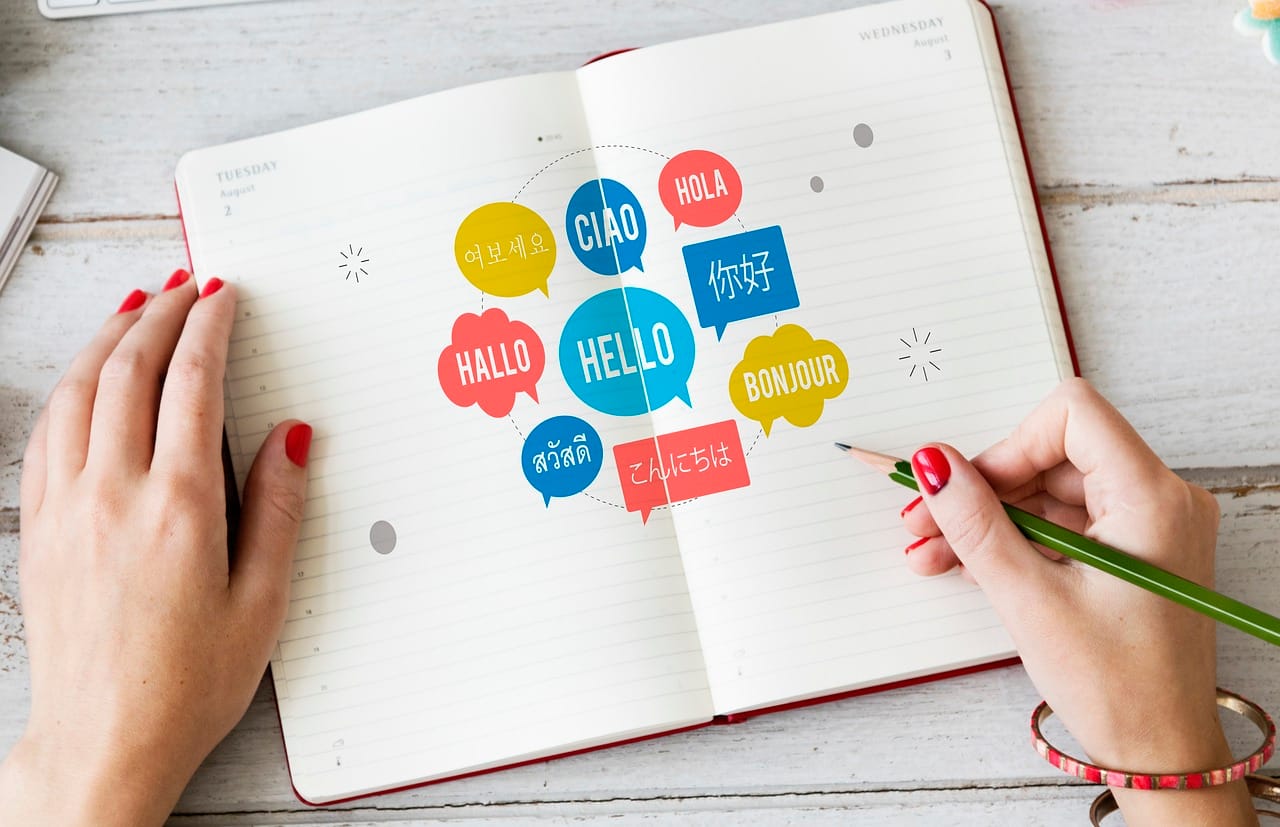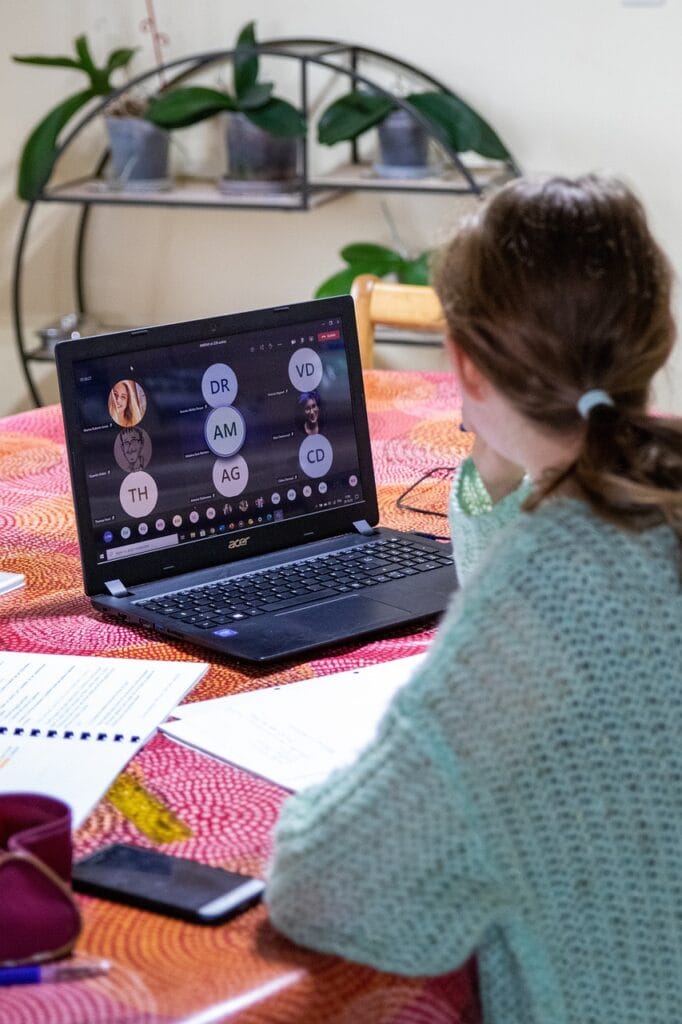how to not forget a language
How to overcome forgetting the new language

how to not forget a language : Learning a new language is one of the richest experiences a person can have in life. While the language and motivations for learning may vary, the goal remains the same, and the methods of learning often share common ground.
The learner embarks on this journey brimming with energy and enthusiasm, much like a newborn eager to absorb new words. The key difference, however, lies in the learner’s active search for effective learning methods, unlike the newborn who passively acquires words from their environment.
At the beginning of this journey, many learners make the mistake of setting overly high expectations and rushing to see results, akin to a farmer dreaming of a garden bursting with flowers and trees. The reality is that the true enjoyment comes from the learning journey itself and the effort invested in filling the garden with new words.
Moreover, a common issue faced by the vast majority of learners is forgetting what they have learned. Many lose hope and give up, believing they are incapable of retaining new information. In truth, this is a universal challenge faced by all learners to varying degrees. So, dear learner, do not despair.

how to not forget a language
types of communication styles
Adjusting Communication Tools
One of the most effective ways to prevent forgetting a language is by adjusting the available communication tools.
In today’s modern world, there is no doubt that people spend a significant amount of their day in front of computer screens and browsing their phones. This reality is a double-edged sword; this time can either be wasted or seized as an opportunity. By setting your phone and computer to English, you can learn new words through daily repetition.
When you implement this step, your language skills will undoubtedly improve through the acquisition of many words used in daily life in English. For instance, you will become familiar with terms like “open,” “close,” “send,” “write,” “picture,” and many other words that will enhance your vocabulary.
By making these small adjustments, you integrate language learning into your everyday activities, turning routine tasks into valuable learning opportunities. This method not only helps build your vocabulary but also reinforces your understanding of the language through constant exposure and use.
Expanding on the Importance of Communication Tools
Communication tools are pivotal in shaping our daily interactions and learning experiences. They serve as gateways to new information, cultures, and perspectives. In the context of language learning, they become even more crucial. Here’s why:
Immersive Environment:
- Setting your devices to the target language creates an immersive environment, making the learning process more natural and intuitive.
- Constant exposure to the language helps in better retention and understanding of new words and phrases.
Practical Application:
- Using language in practical, everyday contexts solidifies your learning. Words and phrases you encounter daily become second nature.
- This method bridges the gap between theoretical knowledge and practical usage, enhancing your fluency.
Continuous Reinforcement:
- Repetition is key to learning. By regularly seeing and using words in your digital environment, you reinforce your learning consistently.
- This continuous reinforcement helps in overcoming the forgetting curve, ensuring that new vocabulary sticks.
Adaptive Learning:
- Technology adapts to your needs, providing personalized learning experiences. This adaptability ensures that you learn at your own pace and according to your own preferences.
- Tools like language learning apps, online dictionaries, and translation tools can complement this process, offering immediate assistance and feedback.
By leveraging these communication tools, you can make significant strides in your language learning journey, turning everyday technology use into a powerful educational tool.

how to not forget a language
Learning Language Watching TV
Watching TV as a Language Learning Tool
Watching television is an enjoyable and effective way to learn a new language. It offers a dynamic and immersive experience that traditional learning methods may lack. Here’s how you can leverage TV shows and movies to enhance your language skills:
Engage with Authentic Content:
- Watching TV exposes you to authentic language use, including slang, idioms, and cultural references.
- You can observe how native speakers use the language in various contexts, which helps you understand nuances and subtleties.
Improve Listening Skills:
- Regularly watching TV in your target language significantly improves your listening comprehension.
- You’ll get used to different accents, speeds of speech, and intonations, which is crucial for understanding real-life conversations.
Expand Your Vocabulary:
- TV shows and movies introduce you to a wide range of vocabulary and expressions.
- Watching different genres allows you to learn specific terminology, whether it’s medical jargon from a hospital drama or legal terms from a courtroom thriller.
Learn Cultural Context:
- TV provides insights into the culture, customs, and social norms of the language you’re learning.
- Understanding the cultural context helps you use the language more appropriately and confidently in social situations.
Enhance Pronunciation:
- By mimicking the pronunciation and intonation of actors, you can improve your speaking skills.
- Pay attention to how native speakers articulate sounds and try to replicate them.
Utilize Subtitles:
- Start with subtitles in your native language to understand the storyline, then switch to subtitles in the target language for a more challenging practice.
- Eventually, try watching without subtitles to test your comprehension skills.
Interactive Learning:
- Pause and rewind to catch unfamiliar words or phrases. Use a dictionary or language app to look them up.
- Repeat sentences out loud to practice speaking and reinforce your memory.
how to not forget a language
learning tips for visual learners
Choose the Right Shows:
- Pick shows and movies that interest you to keep motivation high.
- Consider watching children’s shows, which often use simpler language and clear pronunciation.
Consistency is Key:
- Make watching TV in your target language a regular part of your routine.
- Even 15-30 minutes a day can make a significant difference over time.
Active Watching:
- Take notes of new words and expressions.
- Discuss the show with friends or language partners to practice speaking.
Combine with Other Methods:
- Use TV watching as a supplement to other language learning methods, such as classes, textbooks, and conversation practice.
- This multi-faceted approach helps reinforce what you learn and keeps the process engaging.
By incorporating TV watching into your language learning strategy, you can enjoy an entertaining and effective way to boost your skills. This method not only makes learning fun but also provides a practical understanding of how the language is used in everyday life.

how to not forget a language
Writing in my diary
The Importance of Writing in Language Learning
When learning any language, learners need to practice what they’ve learned through writing, which helps the mind in several ways:
- Mastering Sentence Construction with Grammar Rules:
Writing aids in mastering the formation of correct sentences while adhering to grammatical rules. - Improving Expression of Feelings:
It enhances the ability to express feelings and emotions effectively. - Activating Memory through Word Usage:
Writing activates memory by utilizing previously learned vocabulary.
Writing holds significant importance in language learning. Therefore, beginners are advised to start by jotting down their daily activities using simple phrases. Over time, learners can progress to writing about more complex topics. If you don’t have access to a specialist for correcting your writing, applications like Grammarly can be helpful.

how to not forget a language
best apps for learning a new language
There are several excellent apps available for learning a new language, each offering unique features to enhance your learning experience. Here are some of the best apps currently popular for language learning:
Duolingo
- Features: Duolingo offers interactive lessons in a game-like format. It covers vocabulary, grammar, listening, and speaking exercises.
- Languages: Wide range of languages available.
- Free Version: Yes, with optional paid upgrades for additional features.
Rosetta Stone
- Features: Uses immersive methods to teach languages through visuals and audio.
- Languages: Offers a variety of languages.
- Free Version: Limited free trial, subscription required for full access.
Babbel
- Features: Tailored lessons focusing on practical vocabulary and grammar.
- Languages: Covers popular languages with detailed courses.
- Free Version: Limited free content, subscription needed for full access.
Memrise
- Features: Utilizes spaced repetition and mnemonic techniques to aid memory retention.
- Languages: Offers numerous languages with user-generated content.
- Free Version: Yes, with optional premium subscription for advanced features.
Busuu
- Features: Combines lessons with community interaction for practice and feedback.
- Languages: Offers major languages with structured courses.
- Free Version: Limited access, subscription required for full features.
HelloTalk
- Features: Language exchange app connecting learners with native speakers for conversation practice.
- Languages: Wide range of languages available.
- Free Version: Yes, with optional paid features for enhanced interaction.
Tandem
- Features: Similar to HelloTalk, Tandem connects learners with native speakers for language exchange.
- Languages: Offers various languages for practice.
- Free Version: Yes, with optional paid features for more functionality.
Lingodeer
- Features: Interactive lessons focusing on grammar, vocabulary, and listening exercises.
- Languages: Covers major languages with structured courses.
- Free Version: Yes, with optional premium subscription for more content.
Pimsleur
- Features: Emphasizes spoken language skills through audio-based lessons.
- Languages: Offers a range of languages with audio-focused learning.
- Free Version: Paid subscription for access to full courses.
Anki
- Features: Flashcard app using spaced repetition to aid memorization of vocabulary and phrases.
- Languages: User-created content covers almost any language.
- Free Version: Yes, with optional paid features for advanced functionality.
These apps cater to different learning styles and goals, from casual learning to structured study plans. Depending on your preferences and the language you want to learn, one of these apps can be an excellent companion on your language learning journey.

how to not forget a language
practice language online with native speakers
You can communicate with native speakers of the language even if you are at a beginner or lower proficiency level. Communicating with native speakers at your current language level can be a valuable experience for several reasons:
Learning from Real Contexts: Engaging with native speakers provides a genuine opportunity to use the language in real-life contexts, enhancing your understanding of daily expressions and vocabulary.
Motivation to Improve: Regular communication with native speakers motivates you to improve your language skills more quickly and effectively.
Receiving Corrections and Feedback: Native speakers are usually willing to help correct your mistakes and provide feedback to improve your pronunciation and sentence structure.
Building Confidence: As you begin to communicate and see improvement in your language skills, you’ll gain confidence in using the language and participating in conversations with native speakers.
Tips for Communicating with a Weak Language Level:
- Use Assistive Tools: Use translation apps or dictionaries to help you communicate when needed.
- Ask for Help When Needed: Don’t hesitate to ask the person you’re communicating with to help you understand what they said or to clarify vocabulary and expressions.
- Be Patient: Language learning takes time and effort. Don’t get discouraged if you encounter difficulties at the beginning.
Certainly, communicating with native speakers of the language you are learning, even if you have a weak proficiency level, will greatly benefit your journey to learn the language and improve your skills.
Read more :
